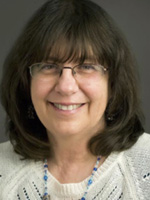
SAN DIEGO — The first book of the Torah begins with the Creation story. This story is read during Simchat Torah, the holiday celebrated last week that marks reading the end of the last book of the Torah and immediately starting over. (See last week’s description of the Creation story.)
This week’s parshah is packed with several stories. Once God created the first man, Adam, God created a beautiful garden called Eden for him to live. God only had one rule for Adam. He could eat from any tree there, except the one in the middle. He was forbidden to eat from the Tree of Knowledge.
God decided Adam shouldn’t be alone, so God brought all of the animals to the garden hoping Adam would choose one as a helper. Adam named each animal but could not find one to be his helper. God created a woman to stand beside Adam in the garden.
A serpent slithered over to the woman and tricked her into picking the fruit from the Tree of Knowledge. She shared the fruit with Adam. God was angry they had broken the only rule they were told to follow. God punished them by sending them out from the garden, never to return.
The next story is a sad one. The woman, now called Eve, had two sons, Cain and Abel. Cain grew up to be a farmer while Abel became a shepherd. Cain brought some of his crops as an offering to honor God. Abel brought the finest of his flock. God liked Abel’s offering but ignored Cain’s. This made Cain mad and he killed Abel. When God asked Cain where Abel was, Cain said, “I do not know. Am I my brother’s keeper?” God knew what had happened and sent Cain to wander without a home.
Cain finally settled down, married and started a family. The Torah parshah spends a lot of time describing the next generations of families, ending with the birth of Noah. By the time Noah was born, there were many, many people living on the Earth. God saw that a lot of these people didn’t treat each other nicely. God was very sad and regretted creating people. God decided to “blot them out” and start over. This section ends by saying God liked Noah, implying that Noah would be allowed to live.
What does this section mean? One important message behind each of these stories is: Take responsibility for what you have done. Eve blames the serpent for tricking her. Adam blames Eve for handing him the forbidden fruit. But, in reality, both Eve and Adam chose to break God’s rule. Each one could have said, “No way!” They chose not to do the right thing.
Cain also makes excuses for what he’s done when he asks, “Am I my brother’s keeper?” Cain doesn’t feel he needs to take care of anyone but himself. He chose not to do the right thing.
At the end of this parshah, God sees the people choosing to care only for themselves and treat each other badly. For each of these stories, God delivers a severe consequence, but the overall message isn’t about the consequences received for doing wrong. The Torah is teaching how important it is to make good choices in life, and to know if you so something wrong, admit it and take responsibility for your actions.
What you can do? It’s okay if you make a mistake. Everyone makes mistakes. Just admit what you’ve done and correct it. Then work hard not to make the same mistake again.
*
Marcia Berneger is a retired elementary school teacher as well as a teacher at Torah school. She is the author of such children’s books as Buster the Little Garbage Truck, and A Dreidel in Time.
Marcia, I have really enjoyed reading your parsha synopses! I know that they are intended for youngsters, but they are concise and really prep me for reading the whole parsha! Thank you!
~Karla